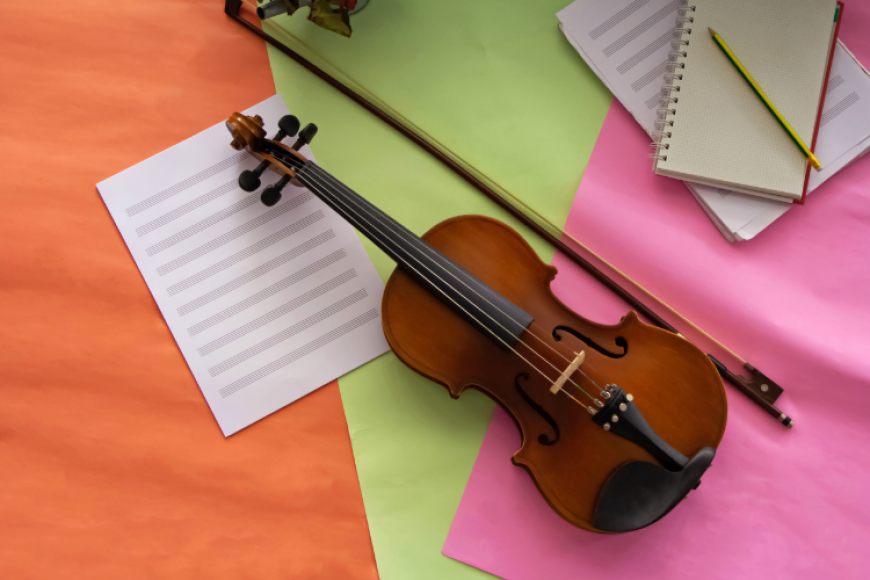5 Tips for Effective Music Practicing

Victoria Witmer is a professional musician who teaches Violin and Viola lessons online. Find out more on her Lessonface profile.
Do you find that you are having difficulty pacing your practice schedule? And is this impacting your ability to master that piece or technique you have been working on?
Consider restructuring your practice routine to make the most efficient use of available time. Here are five tips to help create your own personalized practice plan!
1. Make a Plan
Ask yourself the following questions:
What are your long-term goals? What are your short-term goals? What do you want to accomplish each day? How do these goals align with your available time? What are some of your greatest strengths already? In which areas of music do you want to improve in general?
Discuss and develop these objectives together with your teacher. Write them down, map them out on the calendar, and create a timeline. Share your motivations for pursuing these goals with your teacher, too. They might have some more ideas that will help!
2. Listen Actively
Be mindful and curious while you practice. If something didn’t work the way you expected, stop and try to determine why, and how you can fix it. Go back and make these adjustments before moving on.
Don’t rush. Work slowly to solidify good intonation and technique. When we practice too fast or without focus, we can fall into the trap of reinforcing bad habits.
Audio and video record yourself. Recording your own playing is one of the best tools to promote focus and active listening.
Use technology effectively. The technology available to us today is very beneficial. Metronome and tuner apps are available for free, and YouTube is filled with instructional videos and professional performances we can access instantly. Yet, with all of these benefits comes the risk of becoming distracted by text messages, social media, and funny cat compilation videos. Turn your notifications on silent while practicing.
3. Set Time Limits
When there is only a limited amount of time to complete a task, we are often more efficient in completing that task. Two popular techniques for short bursts of concentrated practice using time limits are the “Pomodoro Technique” and the “Random Practice Schedule.”
The Pomodoro Technique
Developed by Francesco Cirillo, The Pomodoro Technique is used in many different fields of study and business. As applied to instrumental practice, this technique suggests scheduling planned breaks between longer periods of completely focused and uninterrupted work. To illustrate:
2+ hour practice session. Practice goals: Scales, Etude, Sonata
25 minutes: Scales
5 minutes: Break
25 minutes: Etude
5 minutes: Break
25 minutes: Sonata
5 minutes: Break
25 minutes: Sonata
35 minutes: Longer Break
This practicing method also helps you keep track of how many sessions are needed to finish working on one piece or etude. The times and frequency are adjustable according to your needs.
Random Practice Schedule
With the random practice schedule, you are breaking down your practice into very short segments and rotating among them. At first, this strategy might feel a bit fast-paced, but it is an excellent way to keep the brain active and constantly engaged. This practicing method is particularly helpful when preparing for orchestral auditions. When playing excerpts, you will need to switch from one composer, playing style, and musical era to another very quickly. This technique works best when you plan ahead. Determine which exercises and excerpts you would like to isolate and develop in one session. The times and repetitions are always adjustable to fit your needs. For further reading on the random practice schedule, see this article in the Strad.
4. Practice Performing
Don’t forget to practice performing your repertoire! Learning how to play through a piece in its entirety (without stopping) is essential. In the practice room, we often stop and fix a spot where we had a mistake or a memory slip. During a concert, however, this won’t be possible.
Set aside time in your schedule each day (or at least each week) to practice performing. Ask a friend or family member to listen to you play through a piece. If you don’t feel ready for this yet, turn on the recorder and play as if this is a concert.
If you are preparing for a recital or audition, set aside time to play through all the pieces together. You don’t want the first time you play through everything together to be at the recital itself!
5. Practice Without Your Instrument
Believe it or not, some of the most effective practice can be done without your instrument! After recording your playing, listen and take notes for your next practice session. This can help you isolate and concentrate on the areas which need the most work.
Sing or hum the music to discover the most natural ways of phrasing a melody.
Study the score. What did the composer want to convey with this music? What is the harmonic structure? If you are playing in an ensemble, learn how your part fits into the overall structure of the piece. Who has the melody and when? Do you ever play the same rhythm or share a line with another instrument?
Watch and listen to recordings of other musicians. Try following along with the score and understand how they are interpreting the music.
Effective practicing is a skill that might take time to master, but it can make all the difference in your playing. Experiment with different techniques and discover what works best for you!
 |
ABOUT VICTORIA
Victoria Witmer is a viola, violin, and chamber music teacher who prioritizes the needs of each individual student. She teaches with the goals of enhancing performance capabilities and inspiring a love of music. Performing around the world, Victoria has been a member of Lincoln Center Stage piano quintets and the Lucerne Festival Academy in Switzerland. She also sat Principal Viola for Sarasota Opera’s Winter Opera Festival. Through participation in numerous festivals and Masterclassses in Europe, Victoria has assimilated the many ideas and diverse methods taught by widely recognized artists. |




